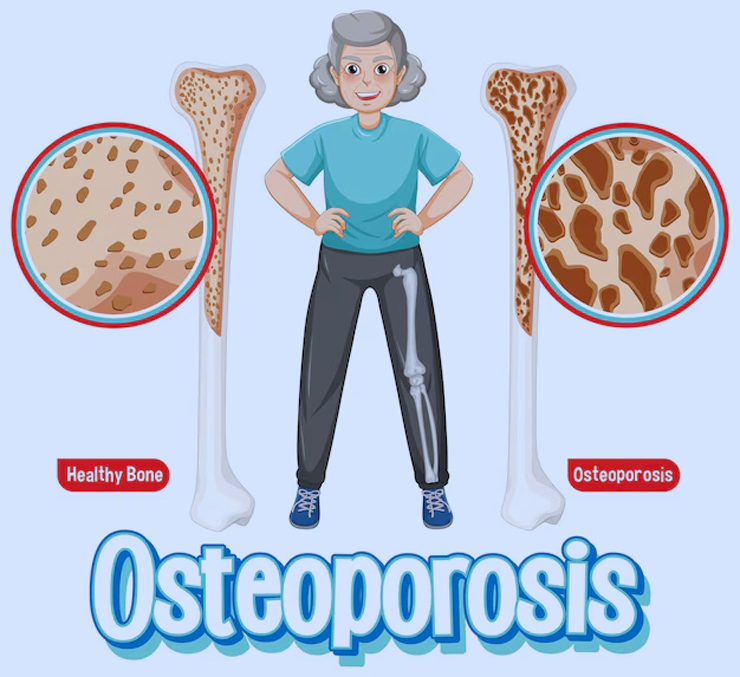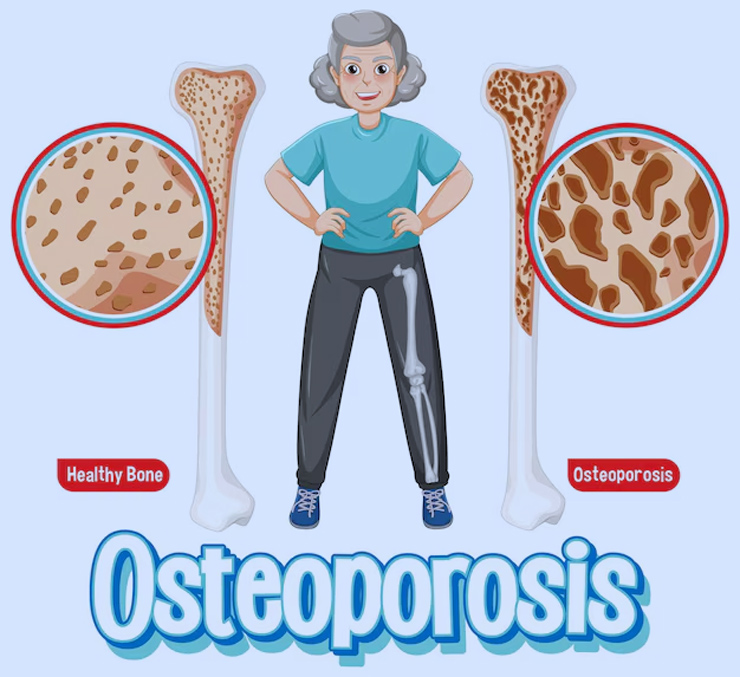
Living in a bustling, polluted city might feel like a compromise for convenience, but have you ever considered how the air you breathe could silently affect your bones? Emerging research reveals that pollutants like black carbon, fine particulate matter, and harmful gases are doing more than harming our lungs—they're weakening our skeletal health too. We spoke to our expert Dr Abhishek Bansal, Director of Orthopaedics, Spine and Sports Injury, MASSH Super Speciality Hospital, who explained the negative impact of acidic air on our bones.
Table of Content:-
The Hidden Impact of Air Pollution on Bones

Air pollution is a global health crisis, with black carbon, fine particulate matter (PM2.5), and other harmful pollutants contributing to millions of deaths globally. According to the World Health Organization (WHO), in 2019, air pollution caused 6.7 million deaths, with 85% linked to noncommunicable diseases like heart disease, stroke, and diabetes, second only to tobacco use.
“The air pollutants are more than just a respiratory hazard; they also interfere with bone density and mineral composition. Heavy metals like lead and mercury, once widely used in fuels and industries, are now recognised for their devastating effects on bones, which act as reservoirs for storing these harmful substances,” said Dr Bansal.
Pollution’s effects are not limited to these well-known toxins. “Acidic air, formed by excessive sulphur dioxide and nitrogen oxides, creates an environment where bone health deteriorates over time. Constant exposure to polluted air disrupts the body’s equilibrium, making it harder to maintain strong and healthy bones,” he added.
Also Read: AQI Explained: Expert Explains What the Numbers Reveal About Your Air Quality
Impact of Acidic Air on Bones
“The excess of sulphur dioxide and nitrogen oxide emissions in the air causes acidic air. Apart from food and water, the air is something to which we are constantly exposed from birth till death, and our body depends on air to make an equilibrium with the surrounding air to survive,” said Dr Bansal.
Here are some examples of how acidic air can impact bone health:
Osteoporosis

Air pollutants, such as black carbon and particulate matter less than 2.5 microns are said to be a causative factor in osteoporosis.
Recent research, including registry-based research in Taiwan, has clearly shown the increased chances of osteoporosis (bone weakness) in populations exposed to polluted air.
A 2017 article inThe Lancet revealed that areas with higher PM2.5 levels had an increased risk of osteoporosis-related bone fractures, with low-income communities being especially affected.
Reduced Bone Mineral Density
“High levels of air pollution have been observed to reduce the bone mineral density of the people in that zone. This ultimately weakens the bone strength and can lead to other bone-related issues like osteoporosis and fractures,” added Dr Bansal.
Low Levels of Parathyroid Hormone

The parathyroid hormone is essential for regulating calcium levels in the blood and bones. Air pollution, or acidic air, causes low levels of parathyroid hormone production, leading to less calcium production and, hence weaker, more fragile bones.
Also Read: Are Your Kids Breathing Toxic Air? How Poor AQI Impacts Learning And Memory In Children
Oxidative Damage
Polluted air is a major source of oxidative stress, a condition where harmful free radicals overwhelm the body’s natural antioxidant defences. In bones, oxidative stress damages osteoblasts (cells responsible for bone formation) and osteocytes (mature bone cells), leading to cellular death. This damage weakens the bone structure, impairing its ability to regenerate and maintain strength.
Lack of Vitamin D

It is well known that Vitamin D is essential for bone health and making your bones strong. "The biggest source of vitamin D is the sun; air pollution tends to decrease the amount of UV light that reaches Earth. As we don't get enough exposure to UV light, we ultimately develop a vitamin D deficiency leading to weaker bones," explained Dr Bansal.
How to Protect Your Bone Health from Acidic Air
Here are some expert-recommended measures that can help you protect your bone health from acidic air:

- Adopt an Alkaline-Rich Diet: Consuming alkaline-rich foods will neutralise the acid in your body due to air pollution. This will help your body maintain a healthy pH and bone health. You should avoid consuming any acidic foods.
- Prioritise Nutrient-Rich Foods: Try to incorporate foods rich in potassium, magnesium, vitamin D, and calcium in your diet, which are essential nutrients for good bone health.
- Stay Hydrated: Water flushes out any toxins present in the body that may have entered your body because of air pollution.
- Limit Direct Exposure to Polluted Air: Wear a face mask when pollution levels are high and consider using air purifiers at home to reduce indoor pollution exposure.
[Disclaimer: This article contains information provided by an expert and is for informational purposes only. Hence, we advise you to consult your own professional if you are dealing with any health issues to avoid complications.]
Also watch this video
How we keep this article up to date:
We work with experts and keep a close eye on the latest in health and wellness. Whenever there is a new research or helpful information, we update our articles with accurate and useful advice.
Current Version
